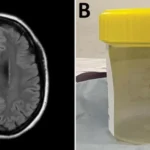A groundbreaking initiative has emerged as the WHO-UN Women Joint Programme on Violence Against Women Data and Measurement, in collaboration with Apolitical and the UN Special Programme of Research, Development, and Research Training in Human Reproduction (HRP), which introduces an indispensable online course. Geared towards public servants and policymakers, this course sets out to equip them with the aptitude to employ data in their mission to eradicate violence against women.
The course, available at no cost, is conveniently hosted on Apolitical’s dynamic peer-to-peer learning platform. This virtual haven caters to government professionals and those closely aligned with governmental initiatives.
The widespread prevalence of violence against women and girls poses a formidable global concern, reverberating across public health, gender equality, and human rights. This menace transcends national boundaries and cultural diversity. Astonishingly, WHO estimates that approximately one in three women worldwide undergo physical and/or sexual violence, predominantly at the hands of intimate partners. Policymakers stand at the forefront, wielding substantial influence over both prevention strategies and response measures.
Within this backdrop, data emerges as an indispensable catalyst for action. It serves as the bedrock for comprehending the magnitude of this issue, guiding policy formulation, advocating for transformative change, and diligently monitoring progress toward obliterating violence while honoring policy and reporting obligations.
The newly introduced course is meticulously structured, spanning four comprehensive modules:
- Understanding Crucial Metrics: Delving into the Significance of Violence Against Women Data.
- Exploring Diverse Data: Examining Various Data Types, Collection Methods, and Management Approaches, including Prevalence Surveys and Administrative Data.
- Addressing Inclusivity: Shedding Light on Underreported Data Concerns, Particularly Embracing the Experiences of Older Women, Women with Disabilities, Migrant, and Indigenous Women.
- Navigating Challenges: Pioneering Innovations in Data Collection Methodologies, including Crisis Periods such as the COVID-19 Pandemic and Humanitarian Emergencies, along with Ethical and Safety Considerations.
Signing up for this transformative course is a step toward driving pivotal change. To enroll, follow this link: Using Data to End Violence Against Women.
Furthermore, the interactive Q&A section enriches the learning experience, offering a platform to pose queries, engage with peers, and access supplementary resources.
For additional insights into the WHO-UN Women Joint Programme on Violence Against Women Data, feel free to reach out to Lynnmarie Sardinha.


















